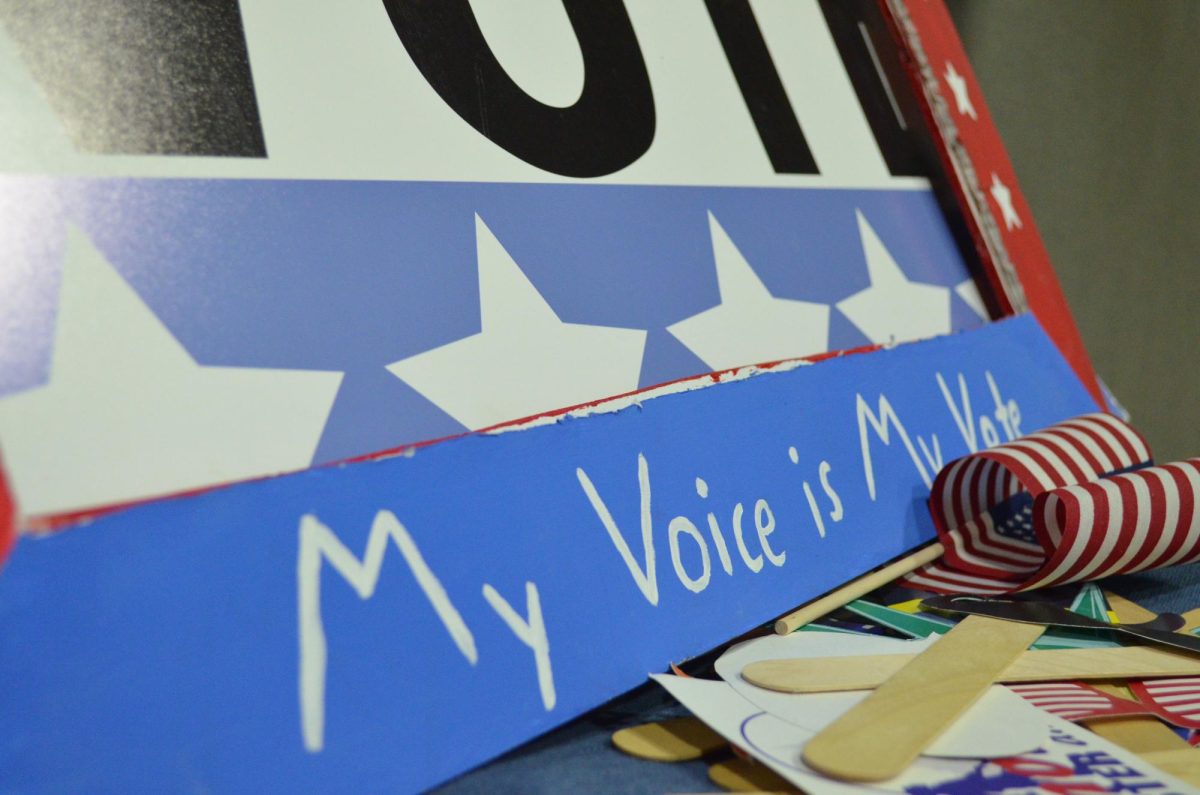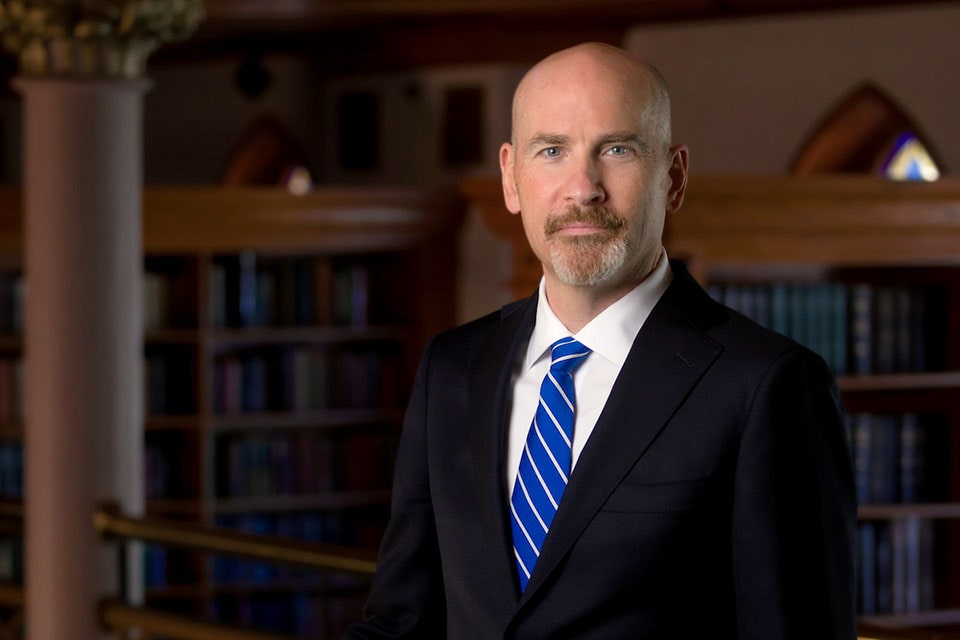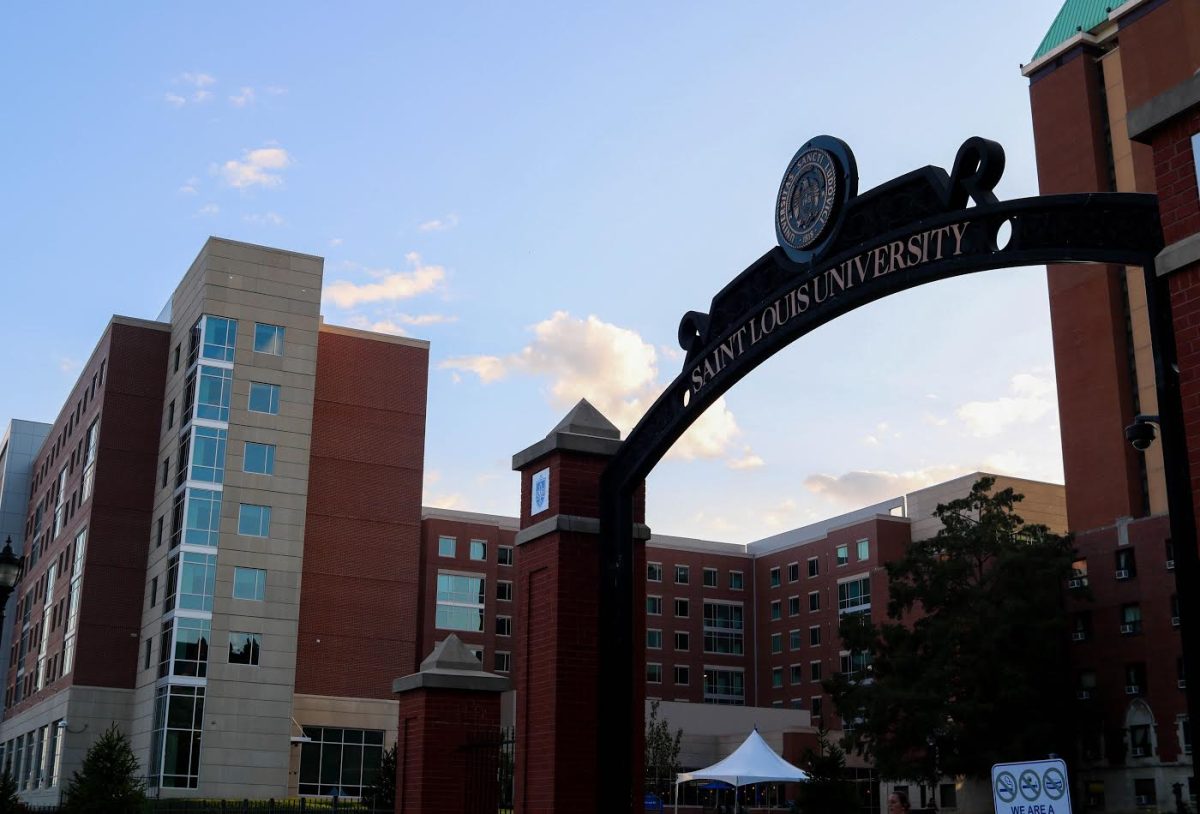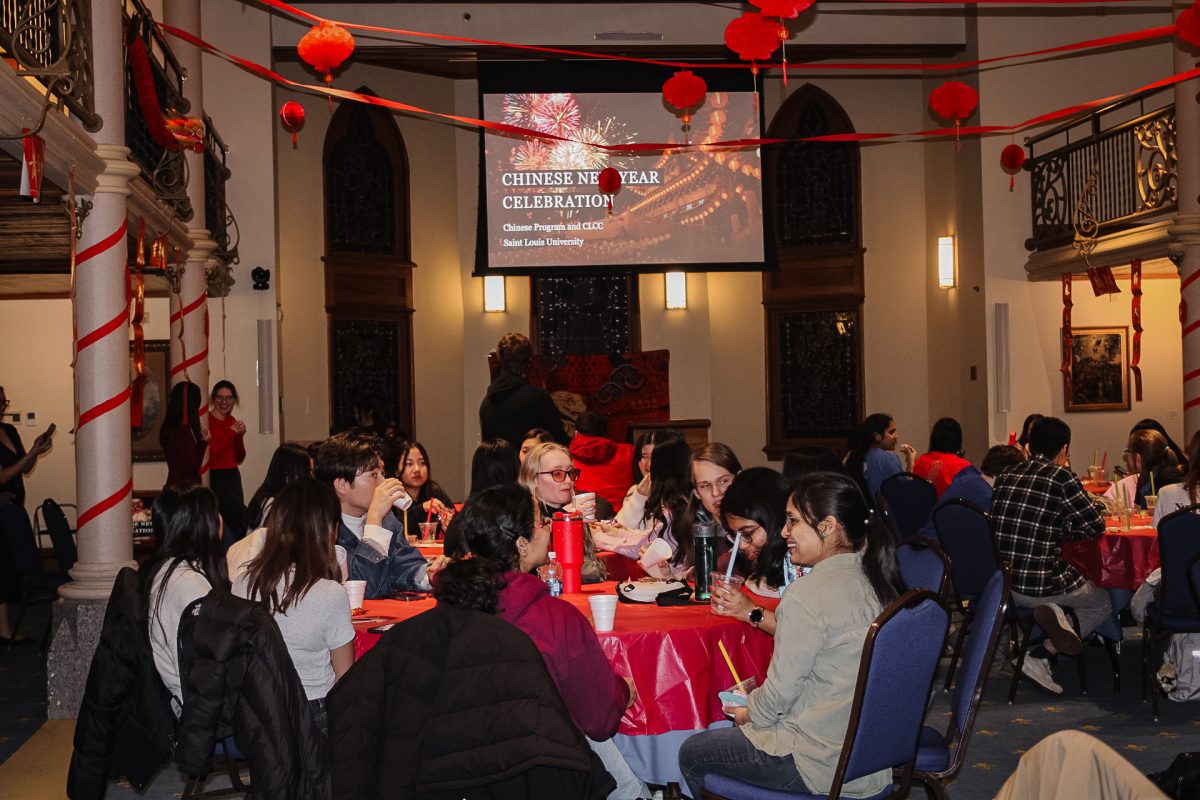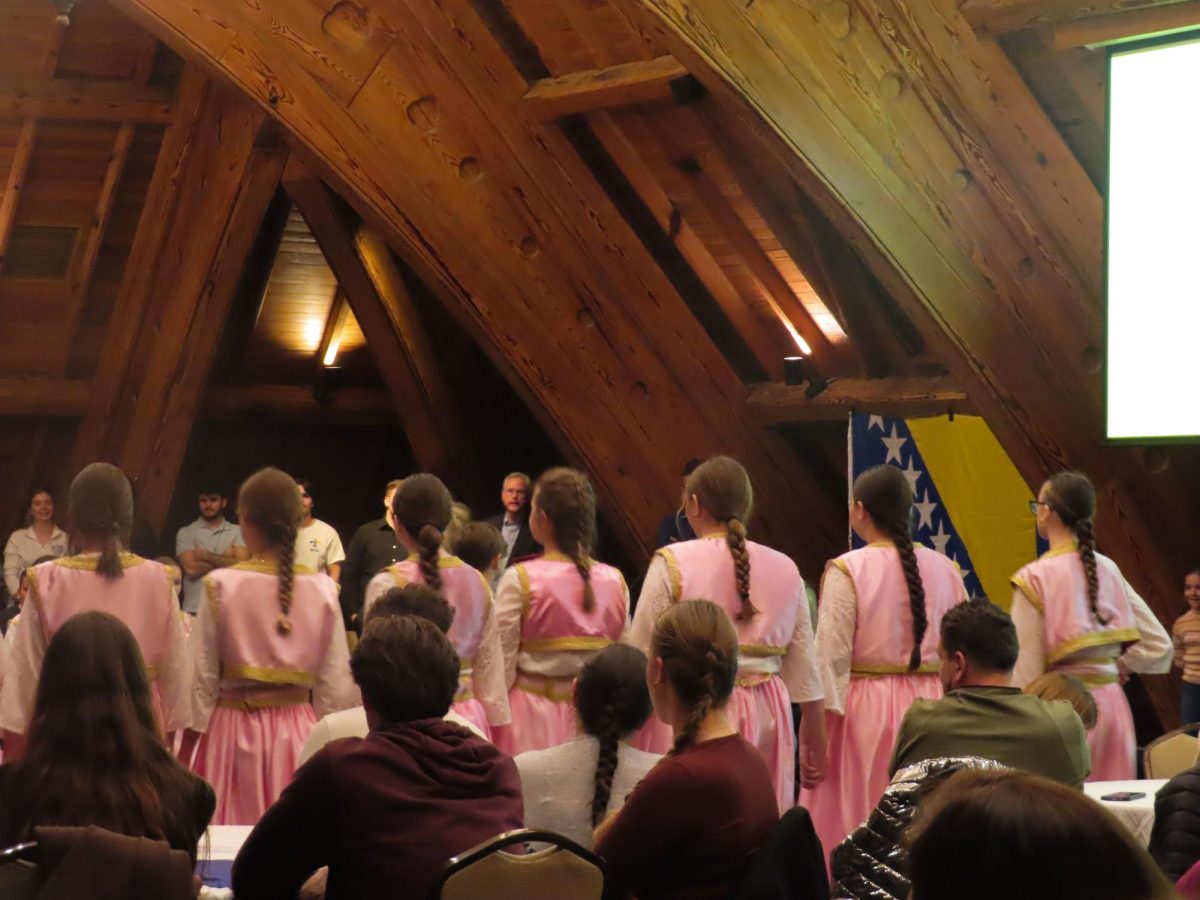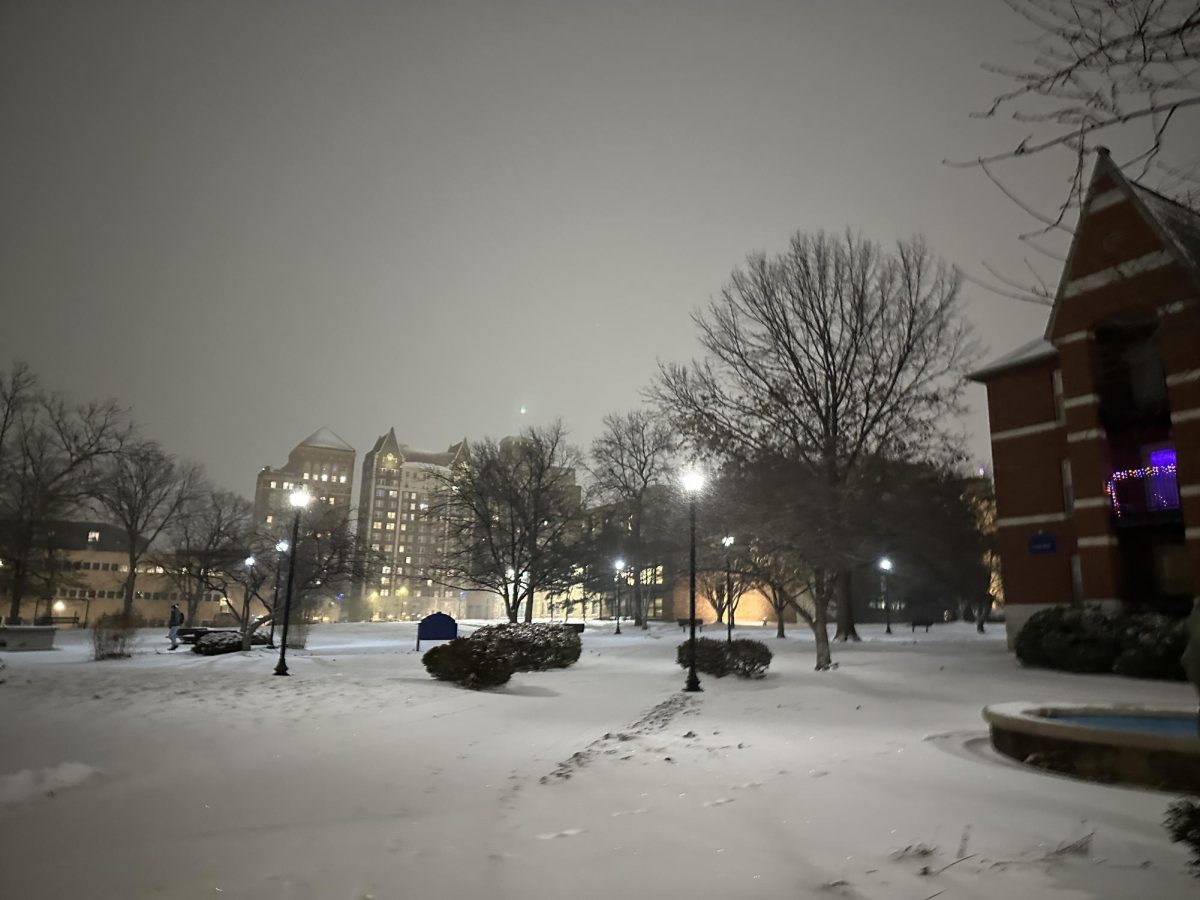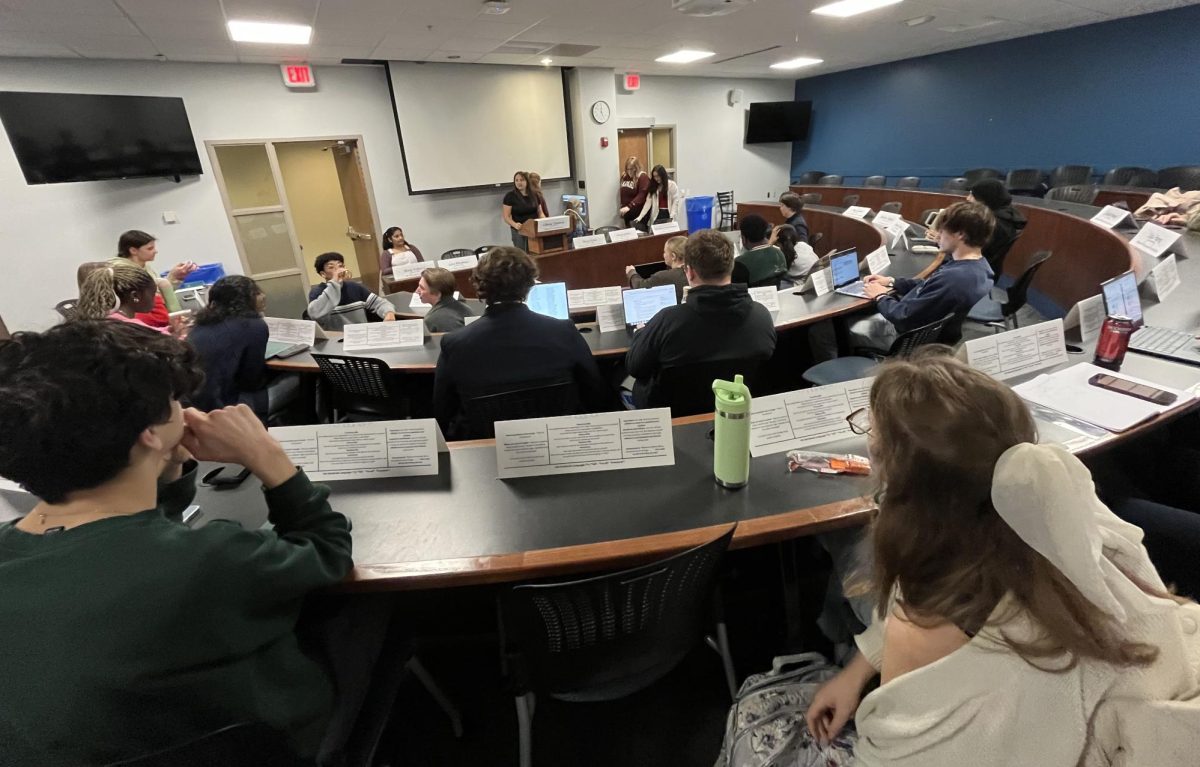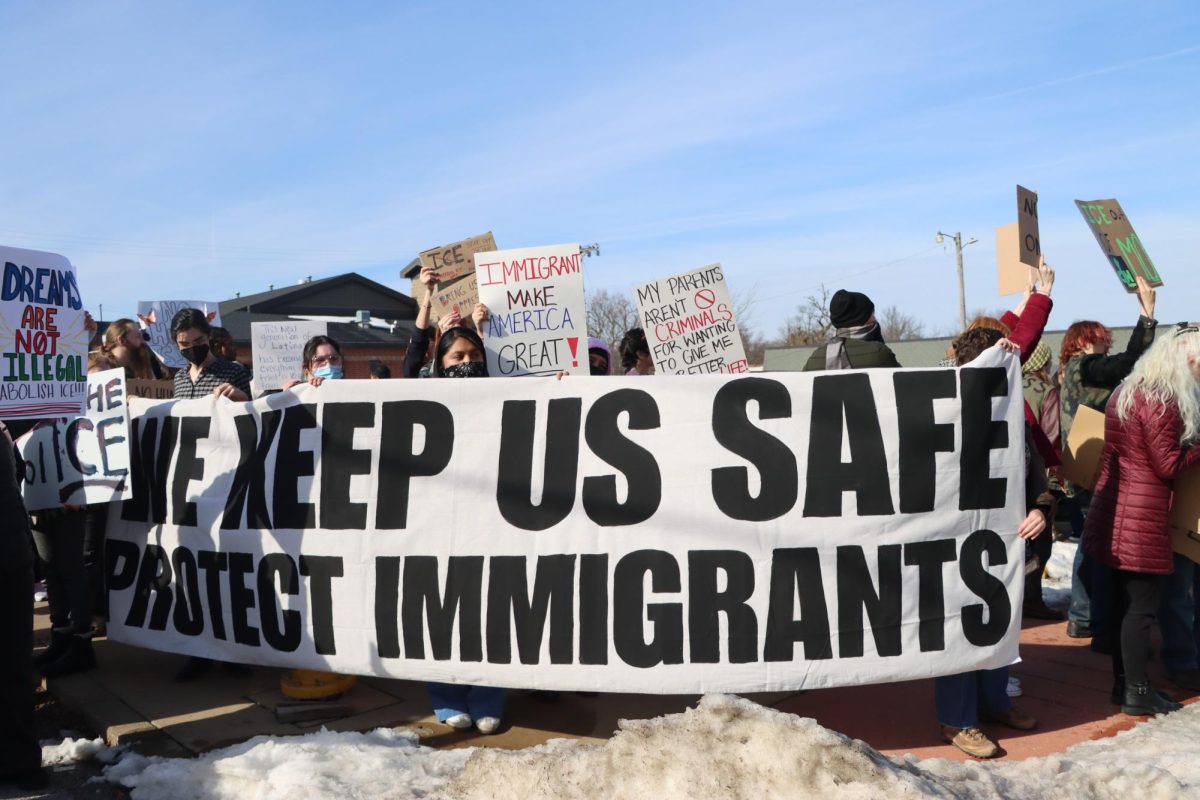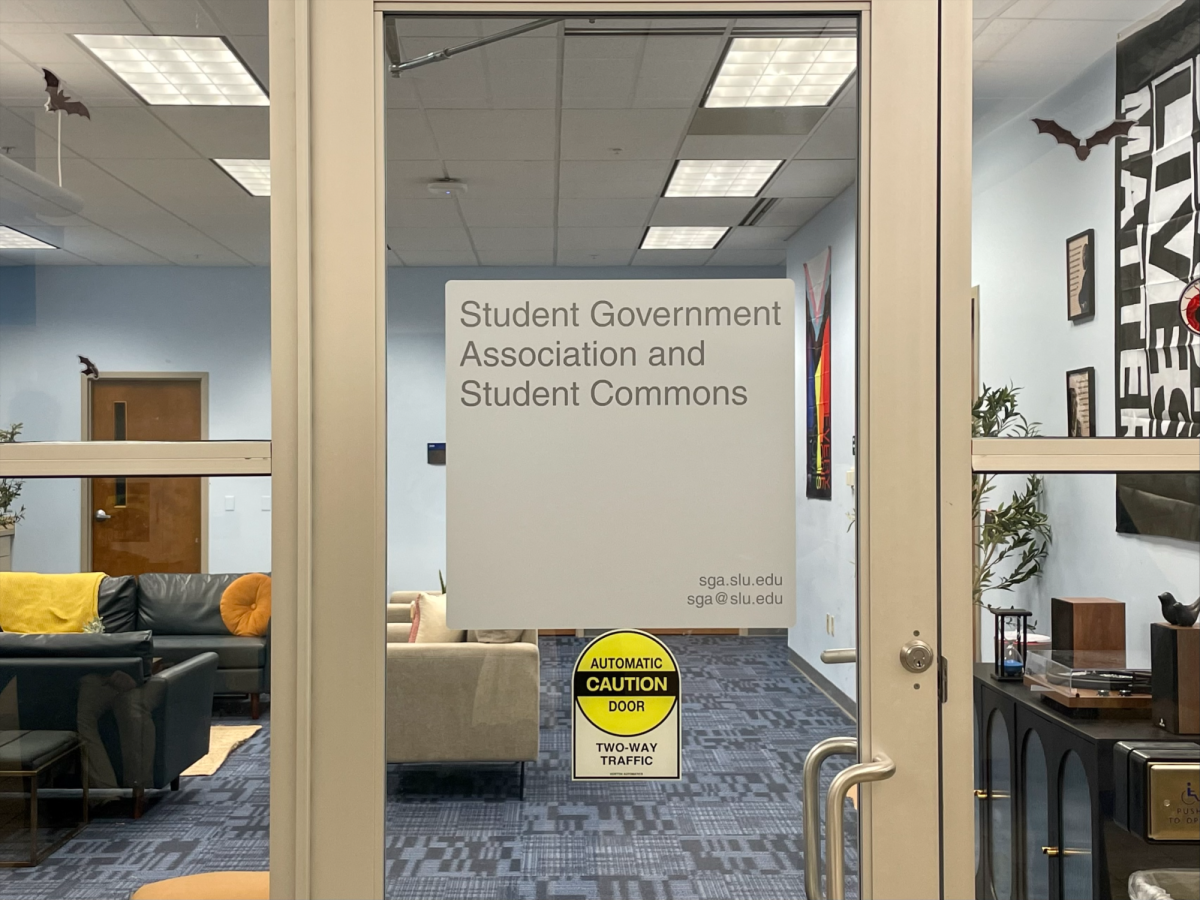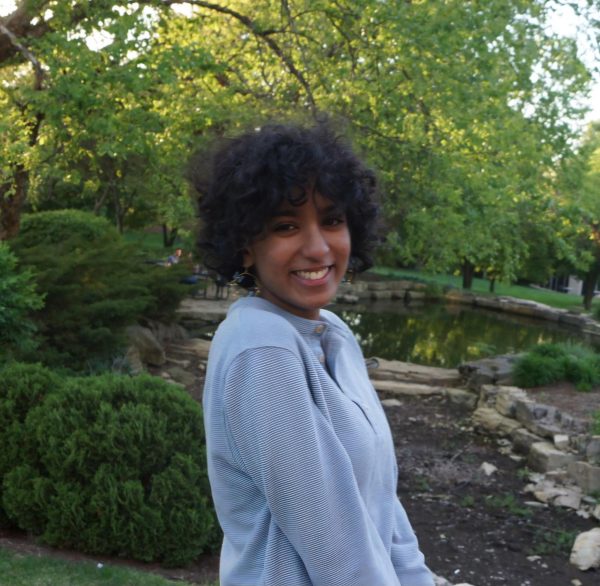Faculty and researchers from Saint Louis University’s political science department discussed the results and impact of the 2024 U.S. elections at a panel event on Nov. 14. They talked about how the economy affected voter turnout, President-elect Donald Trump’s cabinet picks and his domestic and foreign policy goals.
With lingering questions and anxiety about the next four years, the political science experts set out to explain the implications of the election. Nearly 40 students and faculty attended the panel in McGannon Hall, which aimed to give the campus community tools and information to make sense of the election.
Election experts are still considering what motivated voters in this election. Steven Rogers, an associate professor of political science, said the economy was the primary driving force for voter turnout.
“We are seeing a shift in the way that people perceive the economy, at least in the research,” said Rogers, who also researches elections and public opinion. “Previous research showed that individuals used to consider the overall macroeconomic picture when voting, but now, individuals seem to be voting based upon their individual socio-economic standing.”
Rogers also speculated about why Vice President and Democratic candidate Kamala Harris had difficulties securing the same historic turnout her predecessor President Joe Biden had in 2020.
He explained the unpopularity of Biden’s administration and the challenges Harris faced assuming her party’s nomination less than four months away from the election.
“The unpopularity of Biden’s administration stood in the way of any democratic candidate against Trump,” Rogers said. “[Harris] could’ve possibly given more attention to the fact that the cost of living has been growing differently in urban areas than in rural ones, but the situation within the nation and her party made her loss more likely.”
Rogers cited research from Vanderbilt University professor John Sides that predicted a three-point popular vote victory for Trump given Biden’s approval rating, which was at 41% leading up to the election.
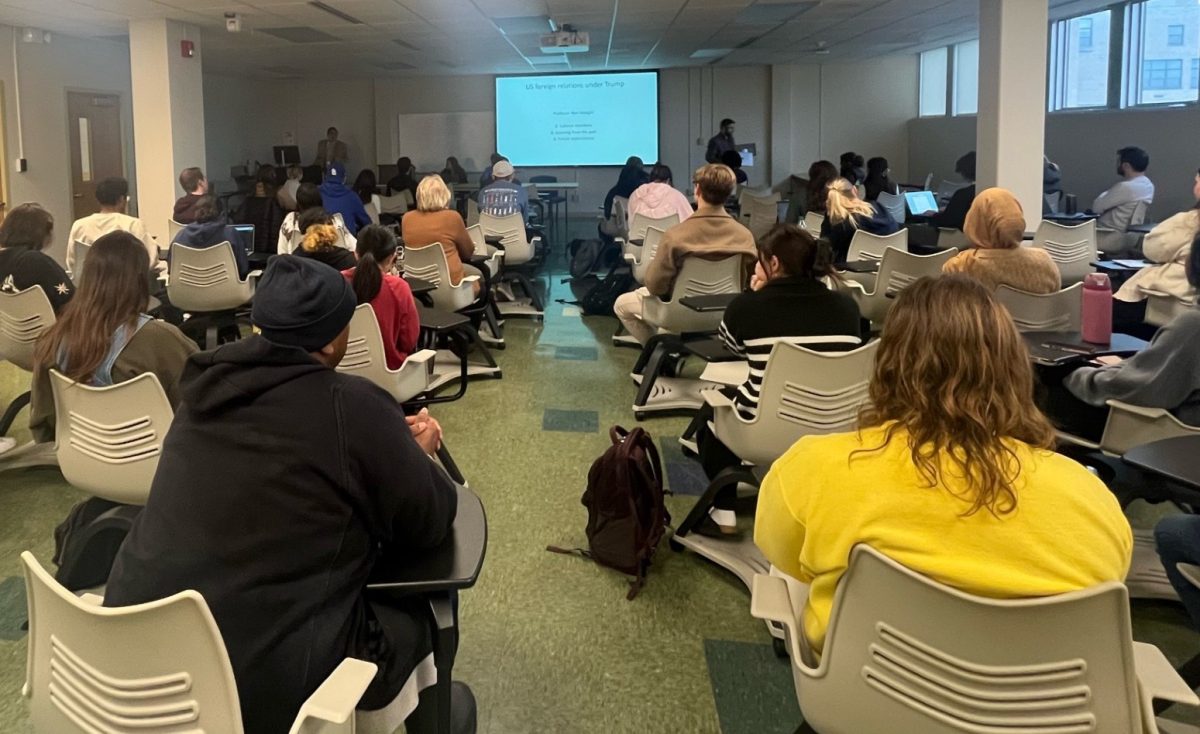
With less than two months until Trump takes office, his presumed cabinet appointments have been the subject of major public attention and outcry. Nori Katagiri, a professor in the political science department and researcher of international relations, overviewed Trump’s cabinet picks and how they will affect his foreign policy.
“Be ready to be surprised. The next four years will be unlike any other you’ve seen before,” Katagiri said. “It’s always a great time to study politics. But it’ll be even more critical than before to study American politics, political theory and international relations.”
Katagiri also explained how Trump’s preference for personal loyalty over political experience displayed by his cabinet picks so far will play out when he takes office.
While Trump’s appointees still need to be confirmed by Congress, media reports indicate he may use recess appoints to circumvent the confirmation process.
“We are likely to see the same kinds of tension that occurred in his 2016 administration, between senior executive officials and the newly appointed, often inexperienced Trump loyalists,” Katagiri said. “Expect short terms and a lot of both voluntary and involuntary departures from these key offices.”
Robin Saywitz, an assistant professor of political science who also researches public administration and local government, spoke about how Trump’s policy goals would change the federal government’s bureaucratic structure.
“Trump’s administration is likely to be focused on turning some of the non-appointed roles in bureaucracy, such as division directors, to appointed positions,” Saywitz said.
Federal bureaucrats currently have checks in place against the goals of a new president. For example, the Environmental Protection Agency can investigate and independently enact policies deemed relevant to their expertise. If Trump replaces non-appointed positions with politically influenceable appointees, they may lose some liberty to administer the law, she added.
Among the most controversial individuals selected for Trump’s cabinet are billionaire business tycoon Elon Musk and venture capitalist Vivek Ramawsamy, who have been appointed as co-heads of the new Department of Government Efficiency (DOGE).
Saywitz said the complex nature of the bureaucratic process and the inexperience of Trump’s appointees could be major roadblocks in executing his policy goals.
“We already have a government efficiency agency, the GAO, U.S. Government Accountability Office. It currently acts at the request of Congress, whereas Trump’s new DOGE would likely act upon his request,” Saywitz said. “It’s unclear how this agency will operate in relation to our current bureaucratic structure that often isn’t timely.”
Trump also proposed to close the Department of Education, favoring state-led education initiatives and parent-driven school choice. His plans have drawn controversy, but Saywitz said they would likely not pan out exactly how conservatives envision.
“His changes to the Department of Education are also likely to not be as impactful as he has expressed, and would likely result in the transfer of specific initiatives to other departments. The Department of Treasury could take over the federal student loan programs for example,” Saywitz said.
Beyond domestic issues, people are looking closely at how the Trump administration will handle ongoing wars in Ukraine and Gaza. Katagiri said there is a bigger international threat that Trump has taken aim at–– China.
While China has been a major economic rival to the U.S. for nearly two decades, the second Trump administration could take the competition to new heights. Trump has proposed sweeping tariffs on all Chinese goods imported to the U.S., a policy that threatens domestic consumers and Chinese manufacturers alike.
At the end of the hour-and-a-half-long event, students and faculty in attendance were invited to ask questions, several of which were about the challenges the Harris campaign faced and what the Democratic Party should do in 2026 and beyond.




